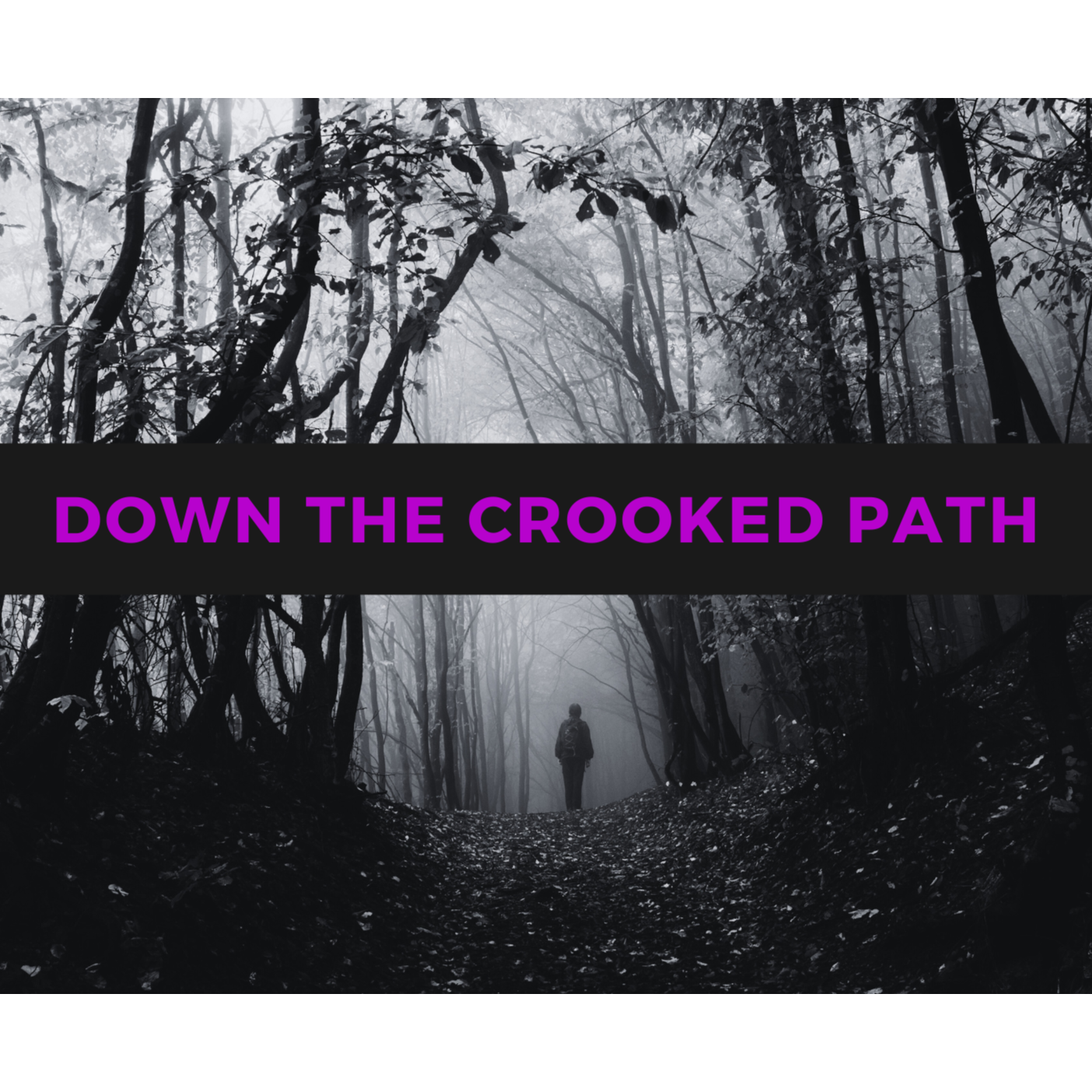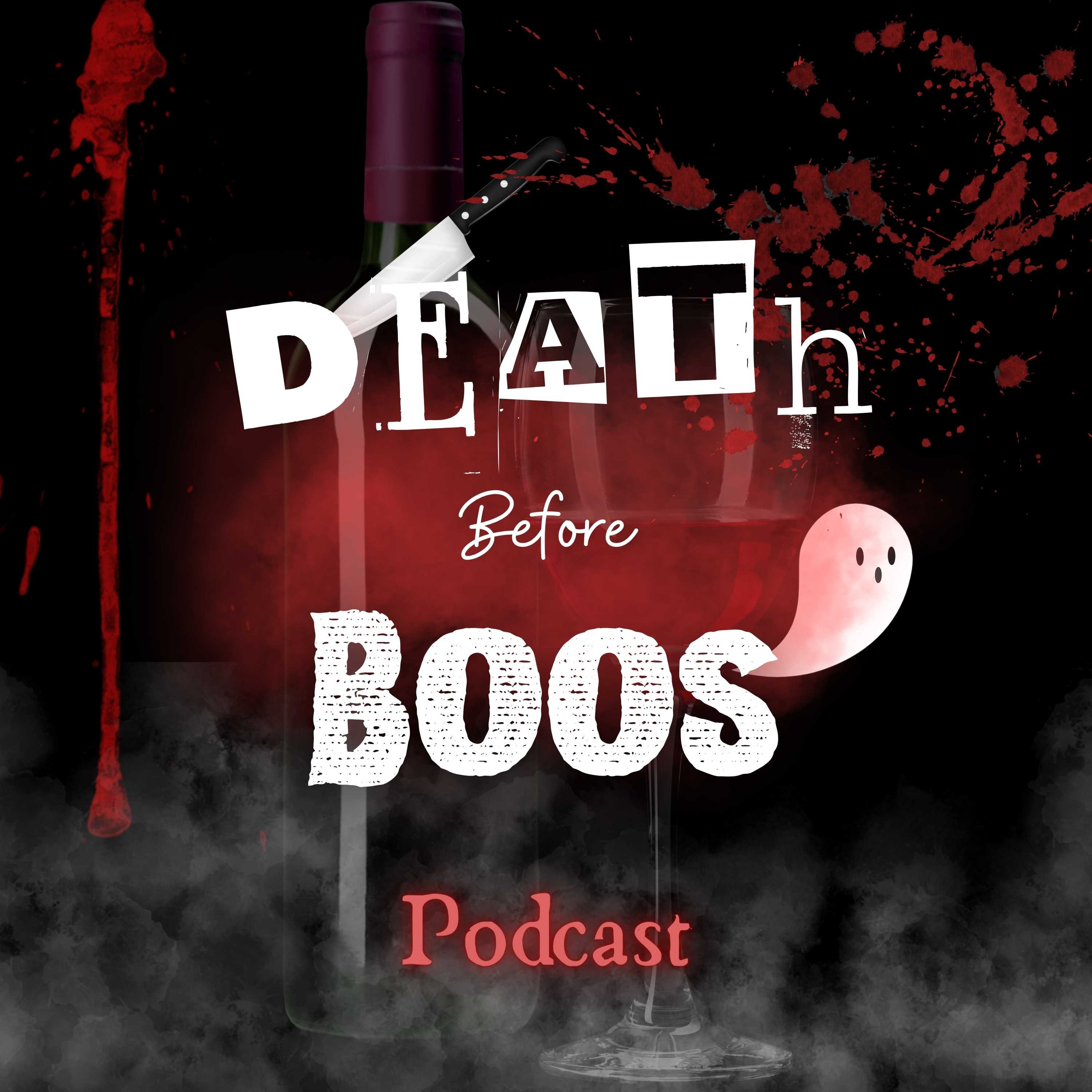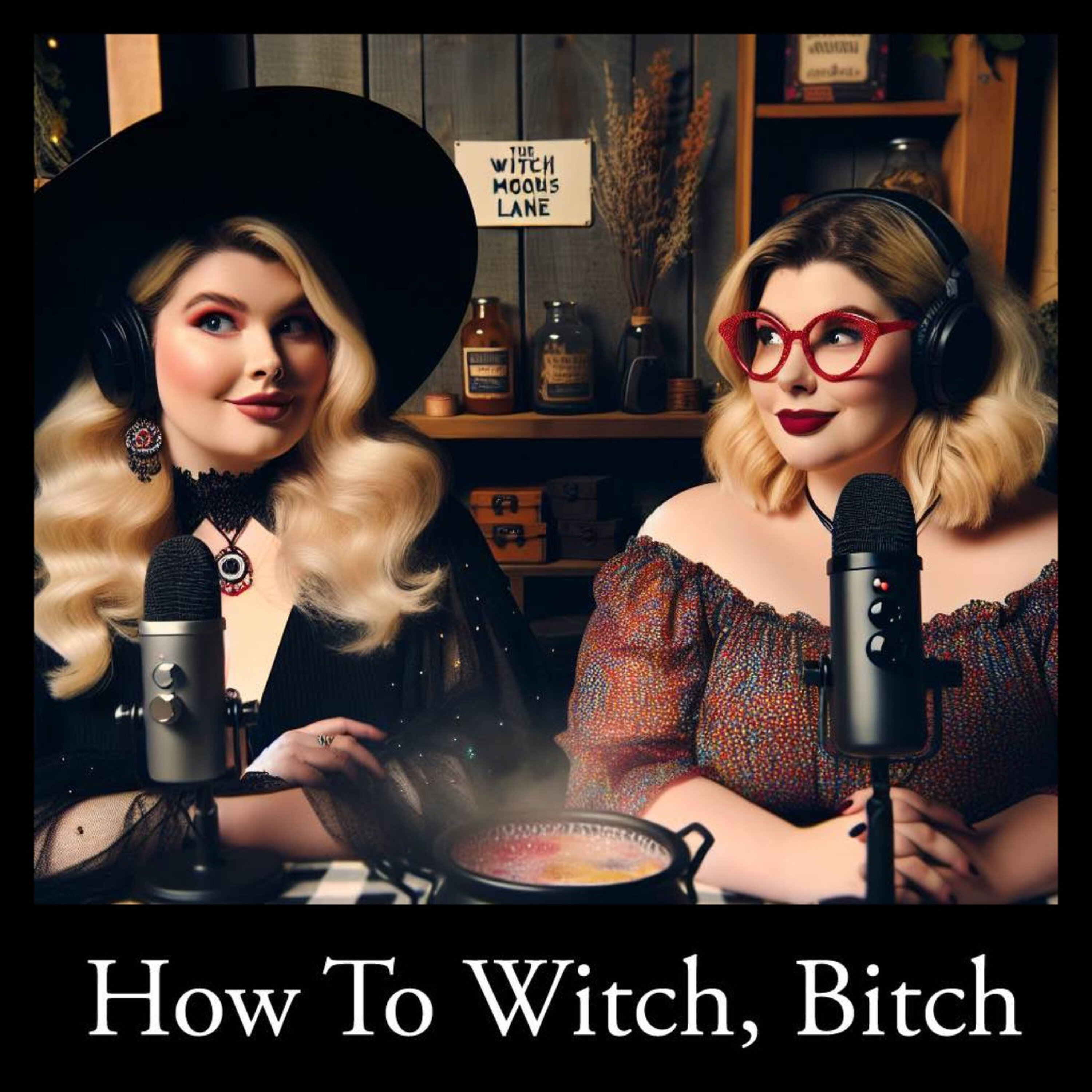
Canadian Creepies
Welcome to Canadian Creepies—the podcast that digs into the dark corners of Canada’s past and present. Your hosts Valerie, Ali, Amanda Joy ( host of Down the Crooked Path), and sometimes Kyle explore the true crime cases that haunt us, the paranormal encounters that make us question what’s real, and the unsettling folklore that lingers just out of sight.
From cults to cold cases, ghosts to government cover-ups, we don’t just tell the stories—we ask why they still matter.
It’s creepy. It’s Canadian. And it’s probably going to keep you up at night.
Canadian Creepies
028 Denis Lortie Part 01: Shadows Before the Storm
Send us a text, tell us your canadian creepy!
In the first installment of this two-part deep dive, Valerie and Kyle trace the dark and disturbing path that led Denis Lortie to the doors of Quebec’s National Assembly. From a childhood steeped in trauma and abuse to a military career marked by alienation and paranoia, Part 1 explores the psychological unraveling of a man who believed he was being controlled by the government—and who would soon act on that belief in a violent and unforgettable way.
🧠 This episode discusses themes including child abuse, mental health struggles, and violence. Listener discretion is advised.
🔊 Listen now and prepare for Part 2—where the storm breaks.
Got a creepy case or a political villain we should feature as our Creep of the Week? Want to share a personal spooky story?
📩 Email us at canadiancreepiespodcast@gmail.com
📱 And don’t forget to follow us on Instagram: @canadiancreepies for behind-the-scenes peeks and updates!
🎙️ Support Reproductive Justice in Niagara
🩺 Niagara Reproductive Justice (NRJ) is a grassroots collective based in the Niagara Region of Ontario, working to increase visibility and access to sexual and reproductive health care. They support people seeking abortion and other essential care by offering transportation, financial assistance, logistical help, and emotional support.
🌟 How You Can Help:
💸 One-Time Donation
Send an e-transfer to niagarareproductivejustice@gmail.com. Your support helps cover costs like gas for volunteer drivers, overnight stays, childcare, and other urgent needs.
💖 Monthly Support via Patreon
Join their Patreon and support the cause month-to-month:
👉 patreon.com/NiagaraReproductiveJustice
🙋♀️ Volunteer Your Time
NRJ is always looking for volunteers to help with driving, outreach, admin support, and community organizing. If you’re looking to make a real impact in the Niagara region, this is a great place to start!
📩 Contact them via email or DM them on Instagram or Facebook to learn more.
Follow & Share:
Instagram: @niagarareproductivejustice
Facebook: Niagara Reproductive Justice
🔊 Help amplify access to reproductive care, right here in our own backyard. Whether you donate, volunteer, or spread the word—you’re part of the movement.
🖤 Ghoul Gang, we've got double the creep for you today!
📸 First up: Darkroom Photography, based in the Niagara Region. Mel captures everything from spooky to sweet with creative, lifestyle shoots—and yes, her Halloween sessions are legendary. Transparent pricing, seasonal specials, and all the eerie vibes you could want.
👉 Book at darkroomphotography.ca or email mel@darkroomphotography.ca
🦴 And don’t forget our boo-tiful friends at Back From the Dead Goods—resurrecting your wardrobe with creepy streetwear on Etsy & Poshmark.
👻 Use code CANADIANCREEPIES for 10% off!
Support spooky small biz and creep it cute, creeps.
Edited by Kyle McDonnell
Research and recording of Canadian creepies happens on the shared land and traditional territory of the Haudenosaunee and Anishinaabe peoples, many of whom continue to live and work here today. This territory is covered by the Upper Canada Treaties. A key treaty governing this territory is the Dish with One Spoon Agreement. This treaty between the Anishinaabe, Mississaugas, and Haudenosaunee people binds them to share and protect the land. Subsequent Indigenous nations and peoples, settlers, and all May 8, 1984, a man in military uniform walks into Quebec's National Assembly carrying a submachine gun.
SPEAKER_01:In his mind, he wasn't just attacking politicians. He believed he was freeing Quebec from control, from oppression, from evil.
SPEAKER_00:But Deni Lortie wasn't a freedom fighter. He was a broken man, shaped by violence, betrayal, and voices that only he could hear. And
SPEAKER_01:by the time the day was over, six people would never go home.
SPEAKER_00:Welcome back to Canadian Creepies, where the darkness of our history isn't just remembered, it's felt.
SPEAKER_01:I'm Kyle.
SPEAKER_00:And I'm Valerie. Thanks for joining us today.
SPEAKER_01:This week and next... I'm going to do a take two. This week and next, we're taking you into a chilling case that unfolds in two parts.
SPEAKER_00:Today in part one, we'll be exploring the shadows, the life, the trauma, and the descent. the slow, invisible build-up toward a tragedy that changed Quebec forever.
SPEAKER_01:Then, in part two, we'll take you right into the day of the attack itself, the confrontation, the heroes, and the devastating aftermath.
SPEAKER_00:Before we dive in, a content warning. This episode discusses topics like childhood abuse, mental health struggles, and acts of violence. Listener discretion is strongly advised. And also before we get into it, we had a comment on TikTok from Tara about one of our previous episodes, the episode Evelyn Dick. If you haven't listened to that one, it's episode four. But Tara commented saying that her grandmother worked at the Kingston Penitentiary when Evelyn was there. And her grandma said that she was at work one day and then the next day at work, Evelyn was gone. She served her time and then was relocated Do you remember that case?
SPEAKER_01:I remember. Yes.
SPEAKER_00:Yeah. So it's very cool that this woman found my post and her grandmother worked at the Kingston Penitentiary.
SPEAKER_01:That's cool.
SPEAKER_00:And before I forget, I have to give a huge shout out to my favorite Australian listener, Amanda. Hi. Thanks for listening. Love you.
SPEAKER_01:Take care of yourselves and feel free to skip or pause if you need to. We'll be right here when you're ready.
SPEAKER_00:Early life and trauma. The early life and trauma of Denny Lortie. So researching this, I haven't researched part two yet. So I don't know to the extent of what he's done yet. So we're in this together in this episode.
SPEAKER_01:That's cool. Yeah, both going in a little blind.
SPEAKER_00:And as well with the listeners, if you guys don't know anything about Denny Lortie, and I'm assuming it's Denny because it's D-E-N-I-S. But Quebec listeners can correct me if I'm wrong. He was born March 10th, 1959 in Quebec, Canada, and he grew up in a large family. He was one of six children. And the Lortie family were poor and deeply troubled, living in a rural working class environment. His early childhood was dominated not by innocence, but by fear. I don't know what number of the six children he was. But he was one of six.
SPEAKER_01:And he was afraid.
SPEAKER_00:And he was afraid. He suffered horrific abuse by the hands of his father. One can only assume his siblings also received this treatment. But Denny's father was described as a brutally violent, sadistic man who terrorized the entire family. Oh, my
SPEAKER_01:God.
SPEAKER_00:Which is so sad.
SPEAKER_01:That is very sad.
SPEAKER_00:He... frequently physically abused everyone in the family beatings were frequent and vicious and Denny was routinely beaten sometimes without clear provocation and like not that that matters because when you're a child like if you yell at a child they their nervous system can't recognize the difference between you just yelling to yell or you being mad at them
SPEAKER_01:yeah
SPEAKER_00:know what i mean or like the vibe they can't differentiate they're just scared
SPEAKER_01:i don't know if i can differentiate that either
SPEAKER_00:yes it's hard for any of us to differentiate that um but yeah so when you you know it's like it's like a dog you don't rub their nose and poop because they don't have the recall to put that together that what they're doing is wrong that you're just
SPEAKER_01:Yeah, right.
SPEAKER_00:You're just traumatizing your dog. Yeah, you're just rubbing your face in shit. You're just rubbing your dog's face in shit. Yeah. And then your dog's going to lick your face.
SPEAKER_01:Joke's on you.
SPEAKER_00:That's right. And it's the same reason why you don't hit your dog, because then you're conditioning your dog to be afraid of you to be obedient instead of trusting you to be obedient.
SPEAKER_01:Yeah.
SPEAKER_00:So it's that. I think it's that idea.
SPEAKER_01:Build trust in your child.
SPEAKER_00:Yes. Don't yell at
SPEAKER_01:them.
SPEAKER_00:Don't yell at them. Don't abuse them. Don't beat
SPEAKER_01:them. Don't put their faces in shit.
SPEAKER_00:Yeah. Don't rub their noses in shit and then put them outside.
UNKNOWN:Yeah.
SPEAKER_00:There was also sexual abuse. Reports from later psychological evaluations revealed that Denny suffered sexual abuse at the hands of his father. Which is very sad. The full extent was never entirely detailed publicly, which... I don't think the public needs to know the full extent.
SPEAKER_01:Well, no.
SPEAKER_00:But it's known that the trauma was profound and long-lasting.
SPEAKER_01:So we've got some of the pillars of serial killer forming here.
SPEAKER_00:Yeah, we do. We do. In addition to the physical and sexual abuse, you guessed it, his dad was also emotionally abusive. His father was emotionally cold, unpredictable, and threatening. And Denny learned early that home was a place for fear and not safety. So immediately in his life, he's got like... I can only imagine it would feel like you can never hold on to anything.
SPEAKER_01:Yeah.
SPEAKER_00:Like you're never fully grasping anything.
SPEAKER_01:Always on edge.
SPEAKER_00:Always on edge. Always on eggshells. And in addition to... Yeah. Yeah. There were deep psychological scars formed from a young age on Denny and his siblings. Denny developed trust issues, chronic fear, and a strong hatred toward authority figures. Like, as you would. Like, if all you know is that the person who tells you what to do is going to hit you, yeah, I wouldn't like authority figures either.
SPEAKER_01:Yeah.
SPEAKER_00:He saw authority as something that would betray or hurt you. I can understand how he would have come to that conclusion. That's absolutely perfectly reasonable. He also... showed early signs of emotional withdrawal um which means he struggled to connect with others repressing anger and sadness which i can also completely appreciate
SPEAKER_01:yeah
SPEAKER_00:And I also wonder if, well, it was the 50s, so that would have been the, but a rural family 50s, I also wonder if there was maybe some religion mixed in there.
SPEAKER_01:Yeah, yeah. As a, you mean as like a means to enforce certain punishments or things like that?
SPEAKER_00:Yes. Yeah. And I just mean due to the sheer number of children.
SPEAKER_01:Oh, yeah,
SPEAKER_00:certainly. But also they were rural, so maybe you just needed that many kids to operate the farm.
SPEAKER_01:Yeah, right. It's
SPEAKER_00:cheaper than paying someone, I guess. But yeah, so he showed a lot of signs of emotional detachment. I did touch on this earlier, but he had a sense of helplessness and anger. Not just him, him and all his siblings. Denny, like many abused children, internalized his anger, which later resurfaced explosively in adulthood. which is why I'm doing a therapy called EMDR. We're reprocessing things from childhood. That did not explode in adulthood. There were also, yeah, EMDR, highly recommend. Fragmented family relationships. So the Lortie siblings did not grow up close and supportive. Because also I can imagine if you're the father of a family of six, at some point you realize they're going to get to an age where they can outnumber you. So you're going to keep playing them against each other, which would really fuck with their sibling bond. And they would essentially have no sibling bond. These are just like, we just endured the same abuse. And I don't know who you are. I'm scared you're going to tell on me to make me get abused more. The trauma isolated them from each other. As I just said, everyone was focused on personal survival. This created a cycle of shame and silence. In the culture and time Denny grew up in, speaking about family abuse was taboo. It was the 50s. He didn't talk about it. Even now, some men and women say, mind your own business. No, don't mind your own business. If you hear someone being beaten up, call the police. I never say call the police. But in that case, call the police.
SPEAKER_01:Yeah. Give support. Give support to people.
SPEAKER_00:Give support to people whose lives are in danger.
SPEAKER_01:Yeah.
SPEAKER_00:There were, at the time, there were also fewer resources for intervention. So they're like, I'm sure Children's Aid Society, like if they didn't go to school, I don't know if they went, did they go to school? I'm going to assume they worked on the farm. But even if they did go to school, it's not like... social services and the teacher like the teaching code of conduct is the same where if you or like the legalities behind teaching and social services are the same um the children were conditioned to hide their pain and normalize the violence believing no one would help them even if they tried yeah which is heartbreaking it's very hard i'm so sad for all of them this created generational trauma naturally and silence and i Yep. Right. Yeah.
SPEAKER_01:I mean, that makes sense. I also think it would make sense that surrounding the experiences that your parents had, there would be obvious depression and sadness. If generations before you experienced trauma... would kind of pick up on that like around you know there would be a rhetoric formed around whatever they experience kind of thing
SPEAKER_00:yeah totally it's like um
SPEAKER_01:there's probably many ways that it gets passed down
SPEAKER_00:yes which goes perfectly into what i'm about to say it doesn't get passed down through just stories but also through behaviors emotional patterns and silence
SPEAKER_01:Yeah.
SPEAKER_00:That put a nice bow on it,
SPEAKER_01:didn't it? Absolutely. Wrapped it up nice.
SPEAKER_00:Wrapped it up nice. In Denny's case, his father's cruelty likely stemmed from untreated trauma or violent upbringing of his own.
SPEAKER_01:Yeah.
SPEAKER_00:As we said, a grim inheritance of pain. Instead of healing, the Lortie family's way of dealing with pain was to inflict it, deny it, and bury it. Emotional numbness became the family survival strategy, and Denny grew up emotionally ill-equipped to process fear, anger, or sadness in a healthy way. The silence and untreated trauma planted the seeds for Denny's later mental breakdowns and his extreme reactions to authority, isolation, and perceived control. And now I have some quotes on Denny Lortie's trauma, and I want you to read this one. Sure. But can you read it in a deep voice?
UNKNOWN:Sure.
SPEAKER_01:Sure,
SPEAKER_00:okay, so this sure well yet the deep not the trump voice the deep
SPEAKER_01:oh that wasn't supposed to be trump
SPEAKER_00:Okay, what was it supposed to do you do it again?
SPEAKER_01:I was just trying to Add more bass into my voice.
SPEAKER_00:Oh, it sounded like you like sure
SPEAKER_01:sure
SPEAKER_00:yeah like that that's what i heard um okay so this quote is from a psychological evaluation in 1984 it happened after the attack and it was included in one of the psychiatric reports after his arrest used during his trial
SPEAKER_01:so not trump voice
SPEAKER_00:not trump okay gotcha
SPEAKER_01:the patient describes a childhood marked by extreme physical and sexual abuse He expresses no trust in parental figures and associates authority with fear, betrayal, and violence.
SPEAKER_00:That was perfect. We've got two more. The next one, you can do a different voice for this next one if you want. This next
SPEAKER_01:one
SPEAKER_00:is from court documents. It's a defense argument at the trial. This was part of the defense's argument trying to explain his mental health struggles without excusing his actions.
UNKNOWN:Okay.
SPEAKER_01:Okay, I don't think I'm going to do a voice because I think it'll distract from it. The accused grew up in a house of terror where violence was not an event but a constant reality. His capacity to trust, to love, and to regulate his emotions was deeply, perhaps permanently, impaired.
SPEAKER_00:Nice. And we have one more from a later psychological review which took place in the early 2000s. So this was written during later mental health evaluations while he was still in custody, but it's talking about his childhood trauma.
SPEAKER_01:It is evident that Lord T. carries the scars of severe childhood trauma. His worldview remains deeply shaped by early betrayal and violence, contributing to persistent difficulties with authority and impulse control.
SPEAKER_00:So that speaks to his psychological state. Yes. So what happened to Denny after he experienced all this trauma? What do you think happened? What career path do you think he took after experiencing all of this violent... A
SPEAKER_01:fry cook.
SPEAKER_00:Wow.
SPEAKER_01:A dentist.
SPEAKER_00:Nope. Want to try one more time and then I'll tell you?
SPEAKER_01:Animal surgeon.
SPEAKER_00:Incorrect. He joined the Canadian Armed Forces.
SPEAKER_01:What? You mean he wanted guns?
SPEAKER_00:He wanted guns. That's weird. In the late 1970s, around 1979, when Denny Lortie was about 20 years old, he enlisted in the Canadian Armed Forces. He joined the regular force and served in the communications division. Specifically, he worked as a communications Specialist, a role involving equipment, technical operations, and coded transmissions. Highly structured, detailed work. At first, military life seemed like it might offer him structure, purpose, and belonging. Things he had been missing his entire life.
SPEAKER_01:Of course.
SPEAKER_00:However, the rigid discipline, the constant authority figures, and the demand for unquestioning obedience all began to clash with the deep psychological wounds Denny carried from his childhood.
SPEAKER_01:Yeah, that makes sense.
SPEAKER_00:It does make sense, doesn't
SPEAKER_01:it? He doesn't like authority.
SPEAKER_00:No, he doesn't. So he had some disciplinary issues and struggles fitting into military life. Early in his military career, problems began to surface. Which we're not surprised by.
SPEAKER_01:No, we knew that was coming.
SPEAKER_00:Denny was frequently reprimanded for minor infractions, tardiness, insubordination, and failure to follow orders exactly, which is so funny. So he would be like, I'll tie my shoe, but just one knot. If it was supposed to be a double.
SPEAKER_01:He
SPEAKER_00:was like, I'll brush my hair, but to the left.
SPEAKER_01:I'm doing the Dutchman's loop.
SPEAKER_00:That's right. He's like, I'll show up for drill practice, but one minute late.
UNKNOWN:Yeah.
SPEAKER_00:Uh oh. And he had authority clashes. He... His deep-seated distrust of authority led to strained relationships with officers and senior staff. And these disciplinary issues never escalated into major offenses, but they were persistent enough to stall his career progression and mark him as a problem soldier. So because he was marked as a problem soldier, this led to growing feelings of alienation and resentment towards authority?
UNKNOWN:Yes.
SPEAKER_00:Makes sense. Yeah. So the military system is built on rank and command, which I didn't look into, but I assume that means you follow commands and then you rank up.
SPEAKER_01:That
SPEAKER_00:tracks... You follow commands from the rank and then you rank up.
SPEAKER_01:And then you go up in the rank.
SPEAKER_00:I think it's a pretty simple principle. But this system, the military system, increasingly triggered... Denny's unresolved trauma. Rather than feeling supported, Denny felt constantly judged, belittled, and controlled, echoing the feelings he had as a child under his father's abuse. As it would, because if he's not meeting the expectation he sets for himself or that the military sets for him, he's feeling like, I'm gonna die.
SPEAKER_01:Yeah, and I also feel like the way, I mean, you know, at least the military personnel are portrayed, they're strict.
SPEAKER_00:Yes, they're not nice.
SPEAKER_01:They come down on you.
SPEAKER_00:Hard. especially if you're seemingly weak.
SPEAKER_01:Yeah, and if you are feeling defensive, It might also feel like abuse.
SPEAKER_00:Yes. Yes.
SPEAKER_01:Injust abuse.
SPEAKER_00:Yes.
SPEAKER_01:Army sounds like the last place
SPEAKER_00:he should have been. He should not have gone there. Eventually, he began to resent not just individual officers, but the military as an institution. Yep.
SPEAKER_01:Yep.
SPEAKER_00:And in his mind, the military became a symbol of oppression and betrayal, much like his view of his family.
SPEAKER_01:Yeah.
SPEAKER_00:And I have a quote from a psychological report that was post attack in 1984 that said, the accused exhibited increasingly Let me try that again. The accused exhibited increasing hostility toward authority structures, perceiving criticism or direction as personal attacks rather than professional correction, which is what you said. Yeah. You're right on the money.
SPEAKER_01:That makes sense.
SPEAKER_00:Denny withdrew socially. He was often seen eating alone, avoiding casual conversation and becoming more suspicious of those around him. And his sense of alienation grew into bitterness and eventually into rage that simmered quietly beneath the surface Poor guy.
SPEAKER_01:Yeah,
SPEAKER_00:bad. He was always alone. I
SPEAKER_01:know it's so funny going through all these that we start to sort of like empathize with the Horrible people
SPEAKER_00:and you're allowed to empathize with the version of them that didn't commit the crime. That's like the child version, right? Yes, yeah Here are the first signs of mental health deterioration, his paranoia and delusions. So by the early 1980s, Lortiz, so this is before he joined the army. When did he join the army? In the 70s, I lied. So after the army, which is why this would be here because I did the timeline correctly. Perfect. By the early 1980s, Lortie's mental state had noticeably begun to deteriorate, which I can only imagine the military had a big hand in
SPEAKER_01:doing.
SPEAKER_00:Even, like, hazing. What's that movie? Do they haze? There's a lot of hazing in the military. In the military? Let me see.
SPEAKER_01:Old school?
SPEAKER_00:What's that movie? The Stanley Kubrick movie. Please, sir, can I have another?
SPEAKER_01:Uh-oh.
SPEAKER_00:Stanley, what's that movie? The guy commits suicide with a shotgun.
SPEAKER_01:Oh, I don't think I've seen
SPEAKER_00:it. Oh, no. Oh, no. Sorry, you're not a... What are they called? Scenophiles.
SPEAKER_01:I'm not a... No. I appreciate and enjoy... A full
SPEAKER_00:metal jacket.
SPEAKER_01:Oh, okay. But there's so much that I haven't seen. I think there's so much that I... sit through? You
SPEAKER_00:wouldn't sit through that one, for sure.
SPEAKER_01:But like, I mean, growing up, I think I would, I
SPEAKER_00:don't know. It's a tough watch still. It's very gritty. I've seen it once and I don't think I'd watch it again.
SPEAKER_01:True. I think I have the capacity to nerd out about these things, but I also have the capacity to tune out. I don't
SPEAKER_00:know. That's right.
SPEAKER_01:I don't know. Depends. I have to be interested.
SPEAKER_00:And I was looking up the... Hold on. hazing because there's in full metal jacket there's a lot of hazing okay okay so hazing in the canadian military has been persistent and controversial issue despite policies officially prohibiting it while the canadian armed forces claims a zero tolerance stance hazing rituals ranging from seemingly harshless pranks to serious abuse have been reported over the years often linked to a culture of toxic masculinity power hierarchies and silence I could go into the key aspects of hazing in the Canadian military, but I don't think I need to in this episode.
SPEAKER_01:We get it.
SPEAKER_00:We can go back. We can do that in another.
SPEAKER_01:And we also understand why that would have affected.
SPEAKER_00:Yes. Yeah. He developed paranoid beliefs.
SPEAKER_01:Okay.
SPEAKER_00:Which I think probably had to do with some of the hazing. Absolutely. Thank you. He believed he was being monitored by his superiors without cause. I would think that, too. Mm-hmm. was exerting a malign influence over his mind so he thought the provincial premier was mind controlling him he became obsessed with the idea that someone was pulling the strings behind his life's failures and frustrations another quote from a psychic site from a psychiatric evaluation mr lorty presents with persecutory delusions, believing himself to be a pawn in a vast conspiracy involving the government and military hierarchy. Wow.
SPEAKER_01:Yeah.
SPEAKER_00:He had a lot going on in his noggin. He did. So many gears turning.
SPEAKER_01:Yeah. He's slipping.
SPEAKER_00:Yeah. Auditory hallucinations were suspected. Some reports suggest that Denny claimed to hear messages embedded in television broadcasts which he believed were directed at him personally. However, there was limited formal documentation of full-blown hallucinations. He also had a detachment from reality. By this time, Denny's thoughts were increasingly fragmented. He could not differentiate between internal fears and external threats. Wow. Wow. That sounds something like I do sometimes. His grip on rational thought was slipping steadily, though outwardly he sometimes still appeared functional. That's tricky when they're like that.
SPEAKER_01:Yeah.
SPEAKER_00:When people who are... suffering mental breaks.
SPEAKER_01:It's like a functioning
SPEAKER_00:psychosis. Because by all means, the system has, this guy's just fallen through the, at this point in his life, he has fallen through every single system put in place to help a person experiencing these things. And he's managed to function his way through it.
SPEAKER_01:Yeah. Yeah.
SPEAKER_00:Some additional context to this, there was a mental health care gap, which I talked about. In the early 1980s, mental health care in the military was limited, stigmatized, and reactive rather than preventative. So they waited until something bad happened before they treated it. There was little understanding of PTSD or complex trauma, especially when the trauma stemmed from childhood rather than combat.
SPEAKER_01:Okay.
SPEAKER_00:Soldiers who showed trouble adapting were often punished, not helped. Wow. And Denny received no significant psychiatric intervention. His warning signs were largely overlooked or misunderstood.
SPEAKER_01:Yeah. Yeah. Yeah. That's tough. That's tough. He had such a rough beginning.
SPEAKER_00:Such a rough. He had no chance.
SPEAKER_01:He had no chance. No chance. And that's what really, really sucks about it. And there's probably so many... Well, I mean, obviously so many people like that. That's these situations. These situations where people become serial killers.
SPEAKER_00:Yeah. Happens.
SPEAKER_01:Yeah. Treat your kids right.
SPEAKER_00:Don't treat your kids right. So they don't become serial killers or serial rapists or just you. Okay. So as I talked about, Denny heard voices and he had violent urges. Sorry, I haven't talked about that yet. I touched on it. As Denny Lortie's mental state worsened, he began experiencing auditory hallucinations, specifically hearing voices. The voices reportedly told him to kill those who control you. These weren't abstract thoughts. Denny believed he was being directly ordered by these voices to eliminate people in positions of authority over him. He interpreted these commands as divine or righteous in nature. Not criminal. In his mind, he believed he was acting out of self-defense or even on behalf of others who were also oppressed.
SPEAKER_01:Okay.
SPEAKER_00:That's a lot going on.
SPEAKER_01:I know. I know.
SPEAKER_00:Wow. This is really gearing up. And another quote from a psychiatric testimony. Okay.
SPEAKER_01:Yeah. Yeah. So he's like, yeah, he's got to be the vigilante.
SPEAKER_00:Yeah.
SPEAKER_01:Of justice. That's right. And it's going to go poorly. Yes. As we'll find out soon.
SPEAKER_00:Yeah. These hallucinations combined with his paranoid beliefs about the government created a complete collapse of reality in Denny's mind. and he had a big hatred towards the Quebec government. His paranoia zeroed in on a specific target, the Quebec government, especially the Parti Quebecois under Premier René Levesque. Lortie blamed the government for his personal lack of freedom, the betrayal of traditional values, he saw the government as secular and corrupt, and the feeling that ordinary people like himself were being controlled, manipulated, and crushed. In his distorted view, the National Assembly, the seat of Quebec's government, became a literal symbol of oppression. Denny later told evaluators, I felt like they were taking away everything. My language, my rights, my freedom to be myself. How would they take away his language? He was born in Quebec speaking French under a French government. That's interesting.
SPEAKER_01:His
SPEAKER_00:hatred was not based on coherent political ideology.
SPEAKER_01:Well,
SPEAKER_00:that makes sense then.
SPEAKER_01:He
SPEAKER_00:wasn't involved in separatism debates, and his grievances were personal, emotional, and conspiratorial, not rational or organized. And for our listeners who are not from Canada, separatist debates, there's been a long time. The Bloc Quebecois, I don't know if they're hardcore separatists now. But there's a large portion of people in Quebec who want to be, who have traditionally wanted to be their own country. We call them separatists. We love them. That's all I'm gonna say. We love them. Attempts or lack thereof to get help. During this period, there was no record of Denny's receiving any formal mental health diagnosis or treatment within the military. And his warning signs were visible. visible, more visible. His behavior became increasingly erratic. He was isolated, distrustful, and showed open contempt for authority. However, at that time, mental health care in the military was extremely stigmatized, as I said. Soldiers seen as unfit were often simply discharged without significant follow-up care. Seeking psychiatric help could ruin your career, so even if Denny had wanted help, he likely felt unable to ask. He wouldn't have even considered the fact that something would be wrong with him. That was not even in his scope of relevancy. Wait. Maybe, maybe I used that right. We're gonna keep going and pretend it's good. Command structures failed to recognize the seriousness of his condition. Instead of psychiatric evaluations, disciplinary action was the norm. His growing instability was treated as a bad attitude problem, not a mental health crisis, and that has happened all the time.
SPEAKER_01:The
SPEAKER_00:military culture of the time was that weakness was punished and not treated. There was no room for psychological wounds. It's possible Denny himself hid the extent of his delusions and paranoia from others.
SPEAKER_01:Yeah.
SPEAKER_00:So maybe he did have some idea. While struggling inside the military, Denny also faced a collapsing home life. Throughout all of this, he had managed to marry a woman named Suzanne. And her last name is not publicized. And it doesn't matter. And they had a young son.
UNKNOWN:Okay.
SPEAKER_00:The marriage was troubled almost from the beginning.
SPEAKER_01:Yeah. Yeah.
SPEAKER_00:Suzanne.
SPEAKER_01:Yeah. Girl. I know. Poor Suzanne.
SPEAKER_00:Poor Suzanne.
SPEAKER_01:He's a man in uniform.
SPEAKER_00:He's a man. I know. Well, that must have done it. As his mental health worsened, the marriage completely deteriorated. Denny felt trapped inside. No. Denny felt trapped in family responsibilities.
SPEAKER_01:Okay. Yeah,
SPEAKER_00:yeah, yeah. He resented his wife. whom he now also saw as part of the forces trying to control him.
SPEAKER_01:Oh, dear.
SPEAKER_00:Oh, be more of... Wow, what a typical man thing to say. You think your wife's trying to control you.
SPEAKER_01:Lumped it in with the government.
SPEAKER_00:Yeah, he's like, there's two people trying to control me in this world, world,
SPEAKER_01:country. Oh, my God. My wife and the government. That's right. And I think there's in cahoots.
SPEAKER_00:I think there's... There is in cahoots. There were reports of verbal aggression and threatening behavior at home, though no clear evidence of physical violence toward his family at this point. Suzanne eventually left him, taking their child with her, which deepened his feelings of abandonment and rage. A psychological profile commented, Yeah. Yeah. You can email me to correct me if you want, but I don't really care.
SPEAKER_01:No, you're doing a trump.
SPEAKER_00:I realized that as I was doing
SPEAKER_01:it. Just a little, just a gentle.
SPEAKER_00:I realized as I was doing it, but I was just trying to sound snarky.
SPEAKER_01:Okay, perfect.
SPEAKER_00:So a C1, yes, a C1 standard military issue at the time is a submachine gun.
UNKNOWN:Okay.
SPEAKER_00:He stole some weapons from a military depot, a clear indicator that his plans were moving from fantasy to action, and Denny rationalized the theft as necessary for his mission to free himself from oppression. He also researched the National Assembly. He learned the building layout. He planned a strike when members were present, maximizing the political impact. So in case you guys aren't picking up on this yet, this guy's planning to attack the National Assembly. This guy wants to take out politicians. And here's a chilling post-attack quote from Lord T. He said, they had to be punished. They had to see someone take action. And I mean, someone take action. I'm reading this book right now. And it's called... Something about being a revolution. And the first essay I'm reading in it is about this man, Richie Reseda. And he is an inmate in a prison in the United States. And he started something called Success Stories. That was just to jog my memory as to what I was going to say. So, oh, in that essay... Maybe it's Richie Reseda, maybe it's the other guy who's involved in the essay, but one of them says that in our society, we have really confused the idea of revenge and accountability. And I've been reminding myself that when I've been driving.
SPEAKER_01:Like,
SPEAKER_00:A, if somebody's mean to me on the road, like, A. i just want revenge on them because they were mean to me i'm realizing that's the feeling i'm getting and then i'm going okay but what i would but then my thoughts are like well i wish a cop would pull them over so i can say you can get a ticket for being so mean to me and i'm like and that's the accountability part maybe
SPEAKER_01:oh
SPEAKER_00:so i'm doing both in that example But what it's saying is that we should be focusing more on accountability and less on revenge,
SPEAKER_01:right? But it's just like you wanting a cop to pull them over would be revenge
SPEAKER_00:also
SPEAKER_01:Like I want something to happen to them. That's bad.
SPEAKER_00:Okay,
SPEAKER_01:so don't
SPEAKER_00:ask you to call me out But you're right you're right so that would be me just carrying on my me Their accountability is not my responsibility. Just because they did something mean to me, I don't have to hold them accountable for that behavior in that fleeting moment. Somebody I know personally, I can hold them accountable for whatever we were talking about. I'm losing my train of thought now. We're going into a hole.
SPEAKER_01:Accountability hole.
SPEAKER_00:Accountability hole. That sounds like a... Oh,
SPEAKER_01:don't go in there. That's my accountability hole. Real bummer.
SPEAKER_00:It is a bummer. Okay. So this Denny Lortiz attack was not a random act of violence. It was premeditated, targeted, and in his mind justified. His delusional thinking and emotional desperation fully converged during this time. And by early 1984, Denny Lortie was no longer just hearing voices, he was listening to them. And very soon, the world would see the devastating consequences. You. Yeah, you. Still haunting the same old fast fashion? Time to dig up something better with Back From The Dead Goods, a Canadian small business where forgotten threads get a second life and sustainability meets spooky. This isn't just upcycled clothing. It's resurrected fashion with an eerie edge. Handpicked, reworked, and revived Every piece is as unique as a ghost story whispered at midnight. And because you're a part of the Canadian Creepies family, you get an exclusive deal. Use code CanadianCreepies at checkout for 10% off. Find them lurking on Instagram, Etsy, and Poshmark. Links are in the episode description. Give your wardrobe a second chance at life, if you dare. Hey, creeps. It's Valerie here. And if you're anything like us, you love capturing a moment, whether it's spooky, sweet, or somewhere delightfully in between. Let me introduce you to our go-to for stunning shots, Darkroom Photography, based right here in the heart of the Niagara region. Mel, the brilliant eye behind the lens, is a lifestyle and creative photographer who brings a little bit of magic and maybe a touch of mystery to every session. She's got all her prices listed right on her website. Super transparent, no tricks. And she runs killer seasonal specials around Mother's Day, Halloween, Christmas, and more. I'm telling you, her Halloween sessions? Creepy perfection. So, if you're in the Niagara area and looking to capture memories that are hauntingly beautiful, hit up Mel at mel at darkroomphotography.ca or check out her work at www.darkroomphotography.ca. That's Darkroom Photography, where your memories come to life, even in the dark. Support reproductive justice in Niagara. Niagara Reproductive Justice is a grassroots collective based in the Niagara region of Ontario, working to increase visibility and access to sexual and reproductive health care. Thank you. And you can volunteer your time. NRJ is always looking for volunteers to help with driving, outreach, admin support, and community organizing. If you're looking to make a real impact in the Niagara region, this is a great place to start. Contact them via email or DM them on Instagram or Facebook to learn more. You can find them on Instagram at Niagara Reproductive Justice and on Facebook at Niagara Reproductive Justice. Help amplify access to reproductive care right here in our own backyard. Whether you donate, volunteer, or spread the word, you're a part of the movement. In the final days leading up to May 8th, 1984, Lortie's behavior grew increasingly alarming. Those around him, both in the military and his limited personal contacts, noticed he was agitated, distracted and disconnected from reality. That doesn't seem like it was too far from the norm.
SPEAKER_01:Right.
SPEAKER_00:But here are some examples of the bizarre behavior. So he was talking nonsensically about conspiracies against him.
UNKNOWN:Okay.
SPEAKER_00:and making paranoid accusations about people spying on him, even fellow soldiers. It's like, you're not that important, Denny. He had mood swings with sudden bursts of anger followed by eerie calmness and erratic absence from duties without explanations.
SPEAKER_01:Uh-oh. Murderings?
SPEAKER_00:Well, no. Despite these red flags, there was no serious intervention, like there's never, this man has never had an intervention in his life, from superiors or colleagues consistent with the era's lack of mental health awareness, especially in hierarchical structures like the military. A psychological evaluation later summarized, the subject exhibited rapidly decomposing Oh, yeah. Yeah. Yeah. Yeah. But rather than escalate the situation, officers seem to overlook it, preferring to avoid conflict. Military testimony later revealed there was a culture of allowing problematic soldiers to drift rather than confronting them when no immediate danger was perceived.
SPEAKER_01:Nice.
SPEAKER_00:Yeah. Had superiors dug deeper, they would have uncovered his unauthorized possession of weapons and his unraveling state. But no one did.
SPEAKER_01:Awesome. No evaluation.
SPEAKER_00:None. He eventually stole a military vehicle. On May 7th, 1984, Denny stole a military vehicle. It was a Volkswagen... rabbit assigned to the base cool he took it without authorization driving away from the canadian forces base and there was no immediate search or report was filed to retrieve the car which was another critical missed warning sign Yeah, they just were like, oh, the car's gone.
SPEAKER_01:I guess that car wasn't here.
SPEAKER_00:Somebody probably saw Denny take it.
SPEAKER_01:Yeah, they're like, best not to get in the way.
SPEAKER_00:Yeah. Lorty used the stolen car to drive to Quebec City, hundreds of kilometers away, with the specific intent of attacking the National Assembly.
SPEAKER_01:Got everything he needs right from the military.
SPEAKER_00:That's right. He literally, he was like, this is a one-stop shop. Later commentary by investigators said, the unauthorized removal of a military vehicle marked the moment when planning transitions irreversibly into action. I'd say.
SPEAKER_01:Yeah.
SPEAKER_00:I'd say so. Straight up. That's a valid statement. Before the actual attack, Lortie visited Quebec's parliament buildings to stage dry runs. So he entered as a visitor. He surveyed the building's layout, particularly focusing on entrances and exits and the main legislative chamber. He may have posed as a tourist during these dry runs blending in. And he mentally rehearsed the attack. So he observed security patterns, which were extremely relaxed at the time. He estimated crowd sizes and visualized how to storm the building and where to position him, position himself for maximum effect. No one reported him as suspicious during these scouting visits. Later testimony said it is clear that Mr. Lorty undertook recognizance activities to familiarize himself with the premises he intended to assault. I'd say. On the night before and the morning of the attack, Denny meticulously prepared for his mission with these chilling final preparations. He gathered a deadly arsenal of weapons. He grabbed his submarine... I knew I was going to say that. He grabbed his submachine gun, the C1. Submarine gun. The submarine gun, two handguns, and a large quantity of ammunition. Weapons were loaded and ready, with extra magazines prepared for rapid reloading. Yeah. Yeah. Wow.
SPEAKER_01:I don't know what that... Disintegration?
SPEAKER_00:Like he was deteriorating. Oh. Disintegration. Yeah. So, like, reintegration?
SPEAKER_01:Disintegration. So, yeah, he's... Okay. Yeah. He's further distancing himself from...
SPEAKER_00:Reality. Reality. Yes. He wrote letters to several media outlets, and in these letters he explained his motivations. He framed the upcoming attack as a political act, not a personal breakdown. Mm-hmm. One such letter addressed to a radio station stated... Hmm. Hmm. his private war into the heart of Quebec's democracy.
SPEAKER_01:Dang. Dang. And then he killed him.
SPEAKER_00:We'll find out next week.
SPEAKER_01:Oh, dang.
SPEAKER_00:Now we're going to do Creep of the Week.
SPEAKER_01:Okay. Creep of the Week.
SPEAKER_00:This week's Creep of the Week is none other than Arnold Veersen, the Conservative MP from Alberta who's made it his mission to roll back reproductive rights in Canada. From celebrating the overturning of Roe v. Wade to pushing petitions against abortion access, Veerson's actions are a stark reminder of the ongoing challenges to bodily autonomy. Let's delve into his statements and understand the implications of his stance. Also, I read somewhere that he would criminalize cannabis again if he could.
SPEAKER_01:He's
SPEAKER_00:against legal cannabis, so this guy, he doesn't like anything. Except for alcohol, probably.
SPEAKER_01:Yeah, probably.
SPEAKER_00:Arnold Veerson is a conservative... Put it in the hospitals. Yeah, yeah. So who is he? And I saw he got re-elected again in his writing. Womp womp. Womp womp. Womp womp. I feel for the people of Alberta. Arnold Veerson is a conservative member of parliament representing the riding of Peace River Westlock in Alberta since 2015. Born on May 3rd, 1986. Oh, he's only four years older than me. In Barhead, Alberta, he grew up in the nearby rural community of Neerlandia. Before entering politics, Veerson worked as a journeyman, auto mechanic, and earned a business degree from the University of the Fraser Valley.
SPEAKER_01:So
SPEAKER_00:far, none of what he's saying is, none of this is indicating why he is the way that he is. Veerson is known for his strong social conservative views, particularly concerning reproductive rights.
SPEAKER_01:Yeah.
SPEAKER_00:He needs to stop worrying so much about my vagina and my uterus. He has been vocal in his opposition to abortion, describing it as the greatest human rights violation of our time. I think, Arnold Veerson, you are the greatest human rights violation of our time. Following the U.S. Supreme Court's decision to overturn Roe v. Wade in 2022, Veerson publicly celebrated the ruling, stating, it feels so good and expressing hope for similar changes in Canada. Not if I have anything to fucking do about it, Arnold. In May 2024, Therefore, Veerson introduced a petition urging the Canadian government to restrict abortion access, further emphasizing his commitment to limiting reproductive freedoms. He's also the douchebag who's saying like, no, we're just talking about sex-selective abortions. Guys, that's a right-wing arguing tool. Guys, femicide has been like... Gendercide. Gendercide has been happening internationally and here for years. And if you're going to talk about gendercide from other cultures in Canada, that's a racist statement. That's a racist statement. And I'm going to tell you why. Because when you go to access an abortion, I can promise you there, nobody's going to ask you why you want the abortion. So there's going to be no statistics saying... that so many people accessed abortion because they were pregnant with a girl, that statistic is not available because we don't ask for that. And that is not happening in such crazy numbers. I'm not going to deny that it probably is happening somewhat here in Canada based on the cultures that have immigrated here. But that's not my... As a white person, that's not my job to... I can't even put it into words. It's like it's not my job to, you know what I mean?
SPEAKER_01:Yeah, yeah.
SPEAKER_00:Comment on that, I guess. That would be up to the people in those people's lives and their circle of care and their health professionals and their family members and their therapists to be like, don't abort a girl. You know what I'm saying? Yeah,
SPEAKER_01:yeah.
SPEAKER_00:But if there is a bill that is passed that is going to limit, in quotes, or is going to Make sure that there's no gender side happening. They're not actually doing that. I promise you they're not actually doing it. There's no way to actually do that. There's no way to actually get those statistics. It's just a right-wing argument to control women's bodies. Thank you. Veersen's views have sparked controversy beyond reproductive rights. In a June 2024 podcast interview, he expressed that he would vote against same-sex marriage and cannabis legalization if given the opportunity. I don't know why this guy isn't being doxxed already.
SPEAKER_01:This guy sucks. He sucks.
SPEAKER_00:He's the creepiest creep of the week almost we've ever had. These statements prompted conservative party leader Pierre Pauliev to distance... the party from Pearson's views, reaffirming the party's support for same-sex marriage and reproductive rights.
SPEAKER_01:Wow. Yeah.
SPEAKER_00:And just for fun, and to bring it all together, what I've done is then I've done some research on pregnant people and the consequences. Here's the consequences in fact and statistics of limiting... Abortion access. Because when you limit access to abortion, history has proven this, pregnant people do not stop getting abortions. That's why the coat hanger is such a trope. It doesn't stop. We still access them. People who are pregnant die. That's what happens. So when abortion access is restricted, maternal deaths increase. Wow, that's crazy. Globally, the World Health Organization reports that unsafe abortion is responsible for 4.7 to 13.2% of maternal deaths. In Canada, before abortion was legalized, which was in 1969, which isn't that far away, friends. 1969, not that far away. So let's keep that in our scope of perspective. 1969 with Bill C-150 and then expanded under R.V. Morgenthaler in 1988. So Morgenthaler or Teller? Morgenthaler, that's the case that legalized abortion for us. So thousands of women annually sought dangerous illegal abortions. And not only were they executed dangerously, the people who are providing them, like because, whatchamacallit, abortions, like underground abortions, that's a market. That's a revenue stream. Do you know who gets the market on that? Mobs, mafias, organized crime. That is who women or pregnant people turn to to get abortions when abortions are not made legal. Estimates suggest between 350 to 400 women died each year in Canada due to unsafe abortions in the 1950s and 60s. Thank you. That's our grandparents. If anybody listening is my age or that's your parents, if you're older than me, I don't care. Somebody in your life, your aunts, whoever. 400, between 350 and 400 women died each year in Canada. And that is from the Canadian Medical Association Journal. After legalization of abortion, maternal deaths from abortion procedures virtually disappeared. Because they were safe. Because it's healthcare. Modern complication rates for legal abortion in Canada are less than 0.5%! Less than 0.5%. A key statistic is that legal abortion in Canada is one of the safest medical procedures available, with a mortality rate of less than one death per 100,000 procedures. And that's from the Canadian Institute for Health Information. I have more. After Roe v. Wade was overturned, here's our lessons for Canada. because we're still in these lessons. While Canada has no federal abortion law, the ripple effects of U.S. restrictions are causing concern here. Canadian anti-choice politicians like Arnold Veersen have introduced motions and petitions aiming to chip away at access. Rural Canadians already experienced limited abortion access. In 2021, only one in six hospitals in Canada provided abortion services. And that is sourced from Action Canada for Sexual Health and Rights. If access were reduced further, Canadians could And here's unsafe abortions when access is denied. Globally, 45% of abortions are unsafe where access is restricted. In Canada, before legalization, some estimates suggest tens of thousands of Canadians sought secret dangerous procedures yearly. Wealthy women could travel, poor and marginalized women face the most danger. Again, we had to go to mobs, folding tables, and back alleys with rusty fucking whatevers. If abortion becomes harder to access, even without an outright ban, experts fear a return to dangerous self-managed abortions and increased emergency hospitalizations. There would also be a mental health and economic fallout. The Turnaway study shows people forced to carry unwanted pregnancies experience higher rates of depression, PTSD, and suicidal ideation. In Canada, abortion seekers denied timely access report elevated mental health struggles compared to those receiving care. And a key Canadian finding is nearly half of abortion patients in rural areas experience delays due to travel distance, cost, or stigma. And that's from the Canadian Abortion Providers Support. Delays increase medical risks and exacerbate emotional harm. And then this is just some data, just some raw data for my data heads. So the one column is impact, and the other column is Canadian data. So on the impact column, we have maternal deaths pre-1969, which was, as I said earlier, 350 to 400 deaths a year from unsafe abortions. Then the next one, we have modern abortion safety. Less than one death per 100,000 procedures. Then we have rural access issues. Only one in six hospitals offer abortion services and delay consequences. 50% of rural abortion seekers face dangerous delays. When politicians like Arnold Veerson celebrate attacks on reproductive freedom, they aren't defending life, they're endangering it. History, both global and Canadian, Both global and Canadian is crystal clear. Restricting abortion access leads to suffering, preventable deaths, and generational trauma. Abortion isn't a moral debate. It's a public health necessity. And the real creeps are the ones who would rather see pregnant people suffer than admit that simple truth. And in closing of Creep of the Week, I say, fuck you, Arnold.
SPEAKER_01:Fuck you, Arnold.
SPEAKER_00:Go fuck yourself.
SPEAKER_01:Well said, babe.
SPEAKER_00:Thank you. And that's where we're going to leave things for today.
SPEAKER_01:Right
SPEAKER_00:at the edge of the storm. Denny Lortie's life had been a long, dark road up to this point, but trust us, next week things are about to get even more intense.
SPEAKER_01:Yeah, part two is where everything erupts. We're going to walk you through the events inside the Quebec Parliament, the aftermath, the courtroom drama, and the big questions that still hang over this case today.
SPEAKER_00:Until then, we want to hear from you. If you have a nomination for Creep of the Week, a Politician a corporation, a case, send it our way.
SPEAKER_01:Or if you've got a true crime case you want us to cover, a spooky story, a weird experience, anything creepy, slide into our DMs or email us. We love hearing from you.
SPEAKER_00:You can find us on Instagram at Canadian Creepies or email us at CanadianCreepiesPodcast at gmail.com. We seriously love connecting with you.
SPEAKER_01:Thanks for hanging out with us today. Stay safe, stay spooky, and remember, keep your lights on.
SPEAKER_00:Thank you to Kyle McDonald for editing and composing our theme song.

















